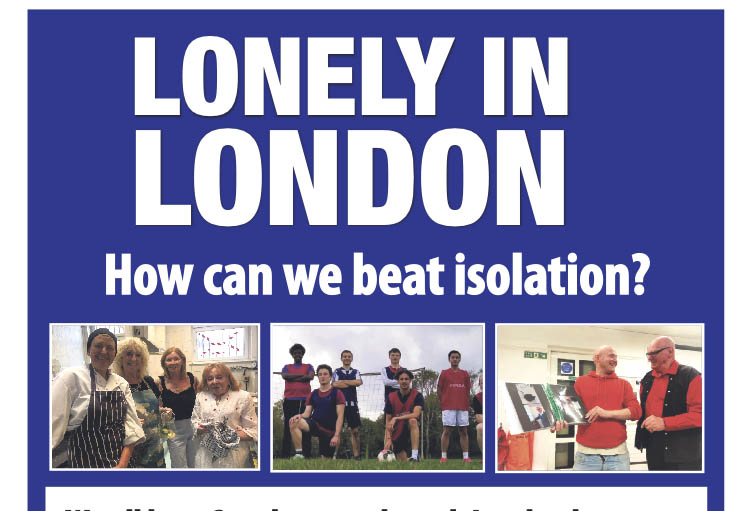Was Maria Kelly yet another victim of unrealistic funding?
COMMENT: The discovery of a vulnerable woman in a partial state of mummification should give us all pause for thought about how low society has sunk
Thursday, 10th October 2024

In 2022, we ran a “Lonely in London” special issue of the paper focusing on the rising levels of isolation
THE discovery of a vulnerable woman in a partial state of mummification should give us all pause for thought about how low society has sunk.
After the Covid pandemic, there was a big push to combat social isolation in the borough – which has the fourth highest percentage of people living alone in the country.
The savage cost of living, coupled with the entrenched sense of detachment attached to the rise of online services, was adding to the problem.
North London Cares, a charity that specifically helped isolated people in Camden, went bust last year, with its bosses warning funding made available during the pandemic for tackling isolation had “fallen away significantly”.
There have been warning signs in the years before the pandemic too. In 2017, there was outrage over the discovery of Patricia Simoni’s body by her neighbour in a council flat in South End Green, six weeks after the authorities had last heard from her.
In 2018, there was national outcry over the story of a man who spent 30 days in a coma at UCLH without anyone being able to establish who he was or where he lived, despite his image being circulated widely in the mainstream media.
In 2022, we ran a “Lonely in London” special issue of the paper focusing on the rising levels of isolation.
The council announced plans to improve “community connectedness” with coffee mornings, food networks and a drive to increase people’s confidence to speak to neighbours.
The NHS started promoting “social prescribing” – a focus on getting patients out and about to improve their health and also assigning them with “link” workers.
Despite this, it feels that the distance between vulnerable people and public services that are there to protect them has grown.
The coroner in the Kelly case asks why there were no welfare checks carried out, or even requests for welfare checks, from the council or police?
It is possible if not likely that NHS workers involved may have believed that this kind of approach would be futile.
Social workers have in recent years spoken to us how they have become overwhelmed that it is almost impossible to do a thorough job. That may go some way to explaining neglect, if not excusing it.
Before the latest general election, Camden Council often sent letters to various ministers outlining the dire consequences of lack of funding to the Town Hall. Will these letters keep flowing now that Keir Starmer is in Number 10?
NHS chiefs often command high salaries that in some ways are in exchange for complicity with the funding packages they are so heavily constrained by.
The case of Maria Kelly is shocking. But should any of us be surprised?